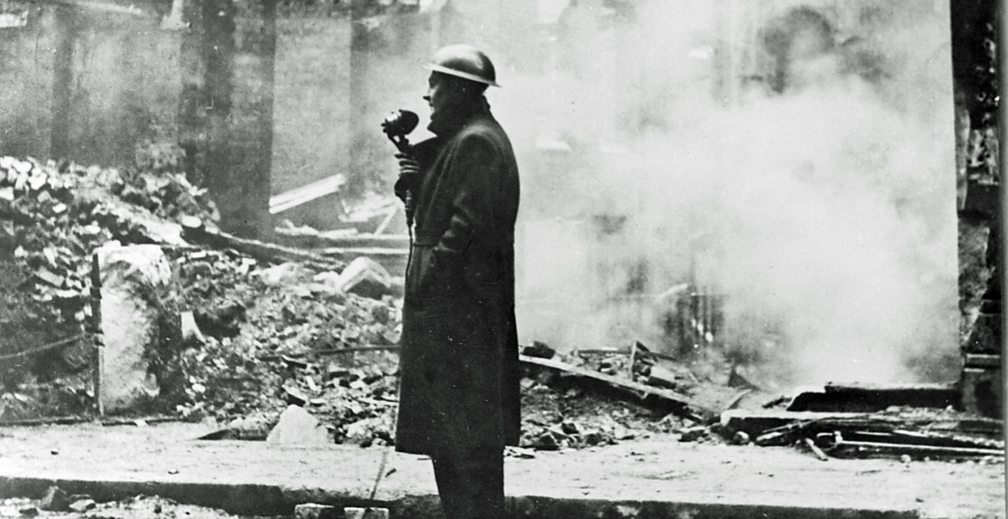
Radio Review: Auntie’s War: The BBC during the Second World War.
By Harry Mottram: With his reassuring voice of polished oak and dry sherry and in a tone that seems to be someone recalling the era as though it was yesterday Edward Stourton relived the way the Beeb’s World War Two radio programmes evolved.
At first stilted and panic filled blanking anything that could be vaguely negative the controllers at Broadcasting House began bit by bit to treat their listeners as adults.
The schedule became a tug of war within the corporation between 1939 and 1945 as the more enlightened slowly gained influence.
The Government and the military wanted greater censorship and would like to have taken full control. In 1939 Auntie was moved from the Postmaster-General’s department to the Ministry of Information, while Churchill was talked out of taking the BBC into full state control. Politicians have since its inception wanted to control the Beeb but during these critical years The Board of Governors kept it independent and out of the clutches of the Cabinet.
The slow maturing of the output and trust that the BBC was giving facts not fake news meant that even today the corporation is respected around the world for its impartiality despite what its detractors say. It was a difficult balance with a mixture of comedy, music and helpful tips on how to make the most of food rationing and what to do with powdered eggs.
The other strength of the Beeb was its live coverage of the war – often from the front line or in the air above Germany as Richard Dimbleby’s famous broadcast did – which made the war immediate. The voices of Alvar Lidell, Stuart Hibberd, Kay Cavendish, Wilfred Pickles and Lionel Gamlin continue to light up the archives and evoke the spirit of the times even it is with a slightly stiff upper lip.
Just as during the General Strike of 1926 the BBC also had to retain control rather than allow the Government to it take over and turn it into a propaganda broadcaster – a struggle that continues to this day.

There’s more at www.harrymottram.co.uk – follow Harry Mottram and Harry the Spiv on Twitter and Facebook, LinkedIn, YouTube and God knows where else.


You must be logged in to post a comment.